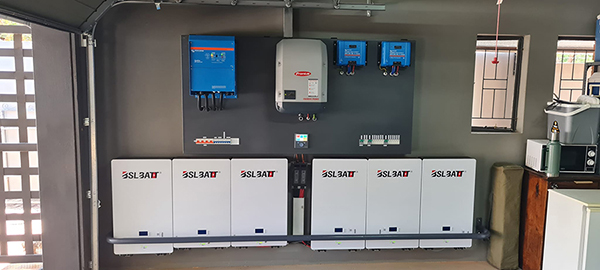BSLBATT announced today that 5 new models of home lithium batteries will begin the UN38.3 certification journey.

UN38.3 refers to part 3, paragraph 38.3 of the UN Manual of Tests and Criteria for the Transport of Dangerous Goods, which is specially formulated by the United Nations for the transport of dangerous goods, which requires lithium batteries to pass a high simulation, high and low-temperature cycle, vibration test, shock test, 55℃ external short circuit, impact test, overcharge test, and forced discharge test before transporting to ensure the safety of lithium batteries. If the lithium battery is not installed with the equipment and each package contains more than 24 cells or 12 batteries, it must also pass the 1.2m free fall test.
Lithium batteries used for air transport must comply with the International Air Transport Association (IATA) “Dangerous Goods Rules” and carry out maritime transport, which must comply with the International Maritime Organization “International Dangerous Goods Rules” (IMDG). According to the current regulations, the inspection report for the transport of lithium batteries must meet the requirements of UN38.3 and provide the latest version of the DGR, IMDG rules for the identification of the conditions of transport of goods report, if necessary, should also provide 1.2m drop test report.
T.1 Altitude Simulation: This test simulates air transport under low-pressure conditions.
T.2 Thermal Test: This test assesses cell and battery seal integrity and internal electrical connections. The test is conducted using rapid and extreme temperature changes.
T.3 Vibration Test: This test simulates vibration during transport.
T.4 Shock Test: This test simulates possible impacts during transport.
T.5 External Short Circuit Test: This test simulates an external short circuit.
T.6 Impact / Crush Test: These tests simulate mechanical abuse from an impact or crush that may result in an internal short circuit.
T.7 Overcharge Test: This test evaluates the ability of a rechargeable battery to withstand an overcharge condition.
T.8 Forced Discharge Test: This test evaluates the ability of a primary or a rechargeable cell to withstand a forced discharge condition.
UN38.3 requires lithium batteries to pass height simulation, high and low-temperature cycle, vibration test, impact test, 55℃ external short circuit, impact test, overcharge test and forced discharge test before transportation to ensure the safety of lithium battery transportation. If the lithium battery is not installed with the device and each package contains more than 24 cells or 12 batteries, it must also pass the 1.2-meter free fall test.
B-LFP48-130 51.2V 130Ah 6656Wh Rack Battery
B-LFP48-160 51.2V 160Ah 8192Wh Rack Battery
B-LFP48-200 51.2V 200Ah 10240Wh Rack Battery
B-LFP48-200 51.2V 200Ah 10240Wh solar wall battery
B-LFP48-100PW 51.2V 100Ah 5120Wh solar wall battery
“As one of the leading lithium battery manufacturers in China, BSLBATT’s home lithium battery products provide customers with high-capacity, scalable, safe and environmentally friendly energy storage solutions through its modular design,” said Eric, CEO of BSLBATT.
BSLBATT home lithium batteries use square LiFePo4 cell technology, are designed to last 10 years, provide 6,000 cycles, and are modular in design, easy to install and easily expandable, Deye, Votronic, LuxPower, Solis and many others.
For more information about the product, please click here BSLBATT home lithium battery.
About BSLBATT: BSLBATT is a professional lithium-ion battery manufacturer, including R&D and OEM services for more than 18 years. The company takes the development and production of advanced series “BSLBATT” (best solution lithium battery) as its mission.
Scott Ellyson, CEO of East West Manufacturing, brings decades of global manufacturing and supply chain leadership to the conversation. In this episode, he shares practical insights on scaling operations, navigating complexity, and building resilient manufacturing networks in an increasingly connected world.